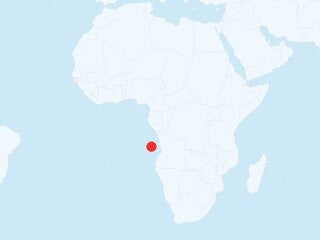The ABT Summer Spill: A Silent Catastrophe and a Call for Accountability
Ashton Routhier
Share
On May 28, 1991, the oil tanker ABT Summer exploded in the open waters of the South Atlantic Ocean, approximately 900 miles off the coast of Angola. The vessel, en route from Kharg Island, Iran to Rotterdam, was carrying 260,000 tonnes of Iranian heavy crude oil when a sudden detonation ignited a massive fire on board. For three days, the ship burned uncontrollably before finally sinking on June 1. Five crew members lost their lives. Eighty million gallons of oil were released into the ocean.
Despite its scale, the ABT Summer disaster remains one of the least publicly discussed oil spills of the modern era. It happened too far from shore for headlines. There were no dramatic images of oil-soaked beaches or wildlife. No cleanup crews lined the coastline. The slick spread across 80 square miles of open ocean, quietly, and largely out of sight. But the absence of visibility didn’t reduce the damage—it only made it easier to ignore.
The spill's remoteness meant that traditional response measures were virtually impossible to implement. Rescue efforts focused on the crew, 27 of whom were successfully evacuated by nearby vessels. Attempts to locate and contain the wreck were unsuccessful. The fire was left to burn itself out. The ocean was left to dilute what it could. And the global shipping industry moved on, with little scrutiny or reform.
Yet behind the curtain of distance and silence, the ABT Summer incident exposed something critical: the vulnerabilities that exist when aging infrastructure, insufficient maintenance, and weak enforcement converge in international waters. Built in 1974, the tanker was approaching two decades of service by the time of the explosion. Investigations never confirmed the exact cause, but the disaster sparked widespread concern over the structural integrity of older tankers operating under flags of convenience, often outside the purview of strict regulatory bodies.
The international response was tepid. French President Raymond Barre moved to restrict tanker access within 11 kilometers of the wreck site, citing negligence. Beyond that, little was done. With no nearby coastline threatened and no jurisdiction clearly responsible, accountability faded into open water.
The lessons from ABT Summer are painfully relevant today. The environmental consequences of oil spills do not begin and end at the shoreline. In fact, offshore spills like this one present more insidious risks. When oil disperses at sea, it infiltrates deepwater ecosystems, contaminates migratory corridors, and enters the food chain long before humans can track its movement. Without a clear cleanup endpoint, the damage becomes permanent—and immeasurable.
What made the ABT Summer spill so dangerous wasn’t just the oil. It was the lack of preparedness, oversight, and maintenance that allowed it to happen. It was the absence of accountability after it did. And it was the industry’s willingness to overlook a catastrophic event simply because it was far enough from land not to trigger a political or economic crisis.
Today, we cannot afford to operate under the illusion that distance reduces responsibility. With global shipping volume continuing to increase, and aging tankers still in service under loosely regulated flags, the risk of another ABT Summer is not theoretical—it’s inevitable.
What’s needed now is not just better response technology, but an uncompromising commitment to vessel inspection, structural integrity standards, and international accountability for tanker operations. The industry must view ship maintenance not as a line item to defer, but as a frontline defense against environmental disaster.
The ABT Summer oil spill was not just an accident. It was a warning. One that was largely ignored then, but must not be ignored now.
